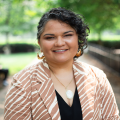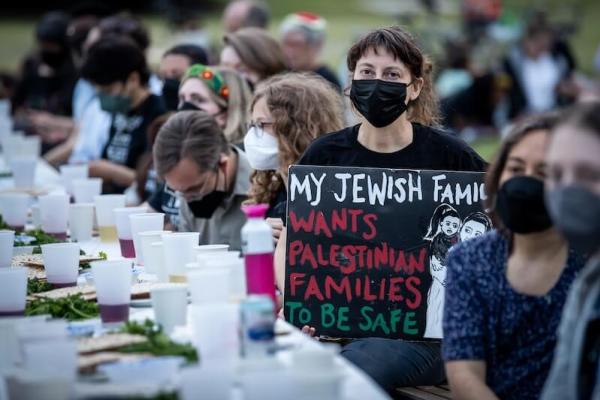Motivated by faith and the prospect of finding a safer and more stable place, about 7,000 people have been journeying through Mexico from Honduras, El Salvador, Guatemala, and Nicaragua.
Families from the Northern Triangle of Central America often cite poverty as a leading cause to migrate north. Usually unseen are the larger causes that contribute to poverty in Central America — the acts of violence that target vulnerable families and the U.S. involvement in the destabilization of these countries.
Multiple false narratives have vilified mothers, children, and families who are seeking a safer and more stable future. Many have appropriated this moment for political gain, painting these people's plight as a “national emergency” that is to be met by armed troops. Others point to national security, emphasizing the presence of Africans and Middle Easterners among the people in the "caravan," seemingly to stoke fear. And other responses portray immigrants as disease-carrying agents, even “lepers” that will infect people in the U.S. and create a public health crisis.
But requesting asylum by presenting themselves at a point of entry is the legal way to seek protection; it's not an assault on this country. To "other" brown-bodied people is destructive, especially if they’re in vulnerable situations, because it creates categories that automatically view some as superior. This has been the basis for many of the world’s greatest tragedies. Fear is the basis of all of these accusations.
Fear is at the center of a potential modified version of the family separation policy that could be announced as these families prepare to arrive at the border. Fear is also what motivated the change in definition of what constitutes a social group eligible for asylum. With rumors of a potential ban on populations that make up this group of migrants, people of faith can’t afford to be motivated by fear. Humanitarian crises demand humanitarian solutions.
Fear can prevent us from hearing and receiving the many gifts that immigrant families bring with them. Like a voice calling in the wilderness, these families are preparing the way for our common renewal. Immigrant mothers, children, and families are part of the sent ones in whom God’s works are revealed.
Most often, God comes into the world in the form of those we least expect: the blind, the leper, the foreign woman, and now, these immigrant families. Many of these families embrace Jesus and the Spirit as their protectors in the journey. They believe in Jesus' name, as the name that will save them when la migra questions them and detains them. They entrust their life to the name that will carry them through the muddy waters and will nourish them on their journey through the desert. Jesus' name is the name that will strengthen them as they walk by foot for weeks, sometimes months, for safety and stability. It is this name that gives them power to be children of God. These are immigrant voices calling in the wilderness to call us back to our whole humanity that welcomes all, cares for our shared home, and seeks the flourishing of all, sent so we may believe better, so we may become more whole.
Fear will only drive us further from love and further away from each other. When thousands of people are on the move, may we be moved to listen to the messages they are bringing. May we not fear the voices through whom God is revealing God's self. May we perceive the Spirit who through migrant families and others on the margins is working in this time.
Got something to say about what you're reading? We value your feedback!







